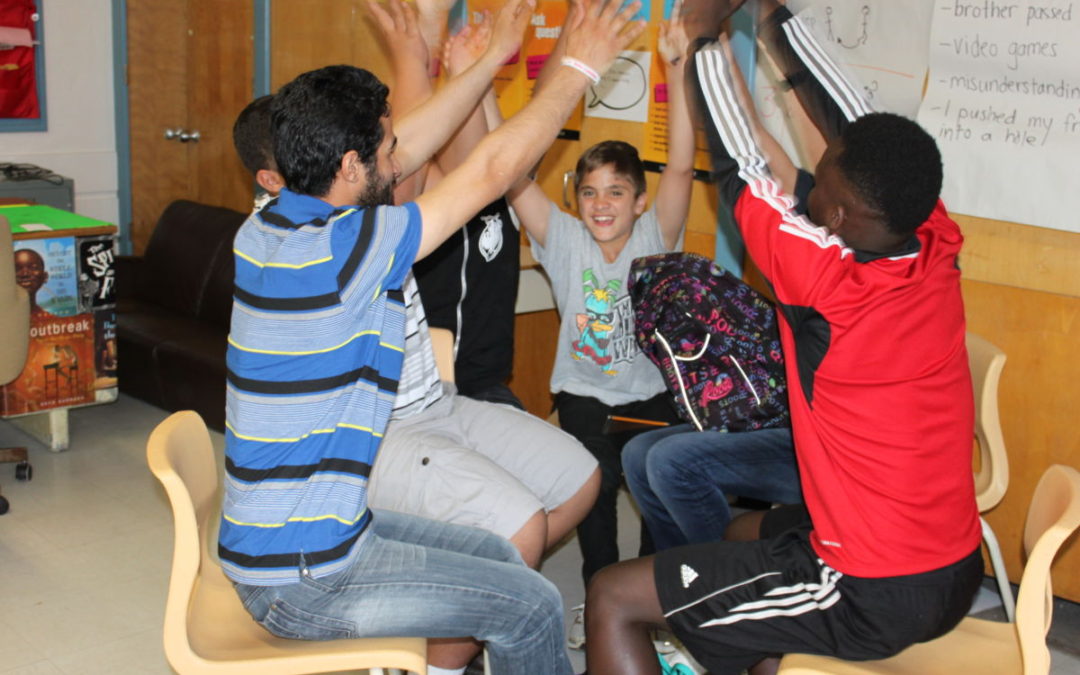Some are shy and others are more outgoing. Most have only had a few months of school to start learning English before the summer holidays began. Many are still adjusting to a new city and culture. So these teens – refugees from Syria, immigrants from Haiti and elsewhere – have a strong mission. They were participants in a day camp designed to bridge the “learning gap” of the summer.
This session of the “Express Mobile Summer English Camp” took place at Queen Elizabeth School in Ottawa’s east end. The goal of the camp was to prepare these young people for school in September… and much more besides. The two-week day camp presented information on nutrition, health, non-violent conflict resolution, and self-esteem. It was also an opportunity to make friends, and visit recreational facilities, libraries, movies, and museums. Newcomer youth worked on their English language skills, but also on their integration, exploring everyday life experiences, such as shopping, medical appointments, and talking to fellow classmates. The curriculum offered insight into contemporary Canadian society, including lessons on Aboriginal history, the role of women, and perspectives on prejudice and discrimination.
In the morning, the camp’s activities included formal, classroom-like teaching, with lesson plans that emphasized skills such as reading, comprehension, grammar, and writing. The afternoons were less structured, and used student-centred approaches including group projects, sports, and outings.
Camp activities responded to the specific needs of the participants. For example, a dozen girls from different countries who had recently arrived in Ottawa as refugees took part in a self-esteem session. Working in pairs, they took turns presenting their partners: their names, ages, ambitions, and interests. For some of them it was the first time speaking in English in front of a class. In another session a group who had seen the film “Zootopia,” which deals with prejudice, considered how to respond to experiences of discrimination.
As well as Queen Elizabeth School, the camp was held at Canterbury High School and Pinecrest Public School. The camp moved around the city to serve newly arrived refugee youth in the various pockets in the city where they live. It was staffed by a mix of CCI staff and volunteers. Reaching and engaging these young newcomers over the summer not only made for a smoother September school re-entry, it laid the foundation for their successful integration in the years to come.

